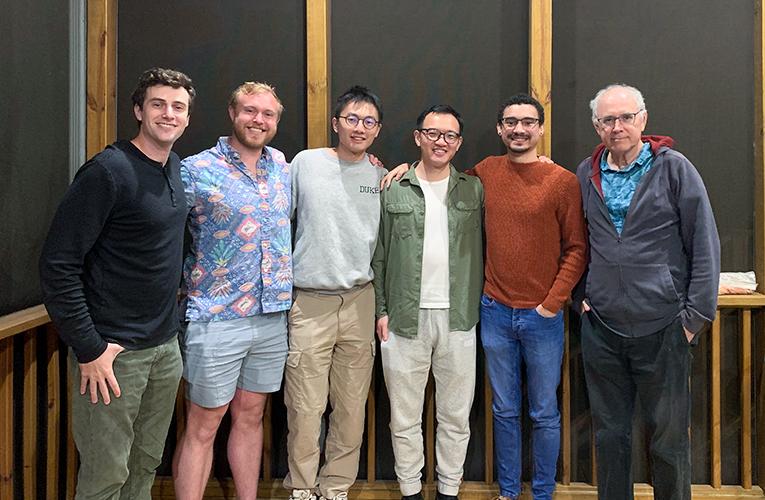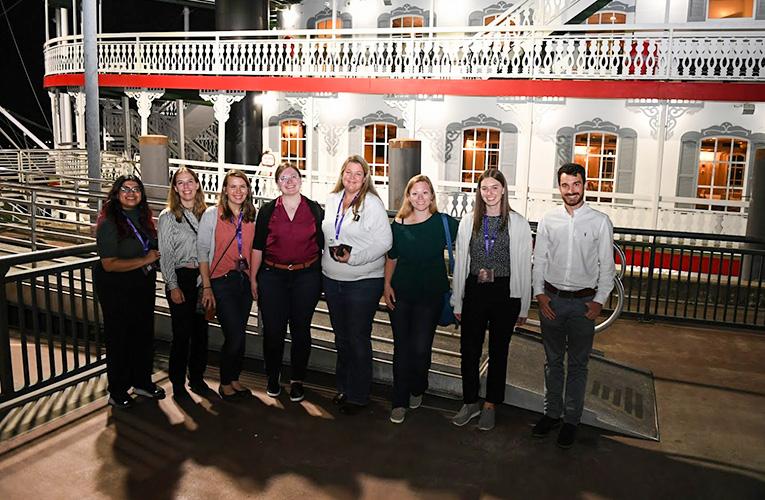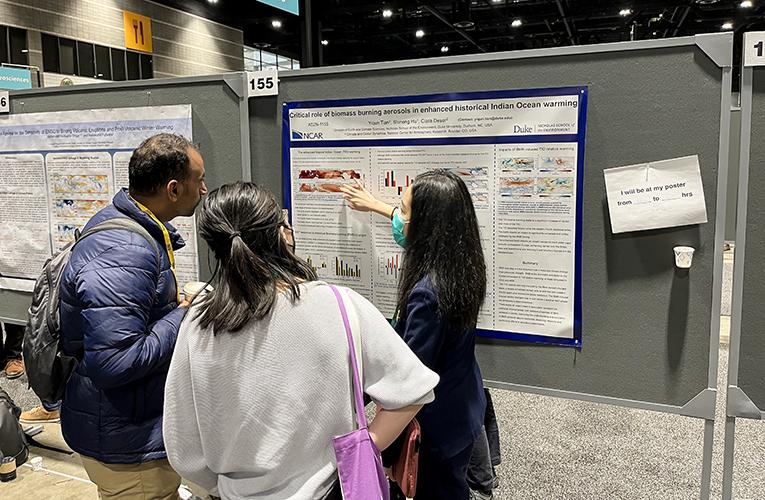The Vengosh Lab, led by Avner Vengosh, Nicholas Distinguished Professor of Environmental Quality, studies how natural and anthropogenic activities affect soil and water quality. Research areas include lead in soils and home dust, searching for alternative resources, fossil fuels (unconventional shale gas and oil; coal ash), renewables, environmental impacts of lithium mining, as well as geochemistry of phosphate rocks, the impact of phosphate fertilizers and geogenic contaminants in water resources.
PhD students Robert Hill and Gordon Williams recently shared insights into the Vengosh Lab, its research, their experiences in the lab and the opportunities the lab offers Duke students.
What is the lab's research focus and what big questions is it trying to answer?
"The Vengosh Lab focuses on understanding how natural and anthropogenic activities affect soil and water quality. Recently we have been investigating the potential water quality impacts of lithium mining in North Carolina and Bolivia. Lithium mining and production has been increasing, in response to demand for batteries and the clean energy transition. We aim to understand the relative environmental impacts of lithium as compared to other base metal mining. We are also investigating the geochemistry of phosphate rocks and fertilizers to develop isotope tracers for reconstructing the origin and geological deposition of phosphate rocks and the environmental impacts of fertilizer application."
What has been your favorite or most rewarding experience in the lab so far?
Gordon: "The opportunities available in the Vengosh Lab are seemingly limitless and have allowed us to interact with a variety of researchers and collaborators as well as the ability to work on novel questions in unique settings. This has involved opportunities to travel to remote and unique field locations such as the Salar de Uyuni in Bolivia. These opportunities for collaboration and field work have been among the most rewarding experiences while working in the Vengosh Lab."
Robert: "I love analytical chemistry, so the most rewarding experience has been having the opportunity to operate lots of different instruments for my research. I was able to travel to the University of New Mexico to use their MC-ICP-MS (multicollector inductively coupled plasma mass spectrometer) to conduct uranium isotope measurements for my research; I utilize the XRD (X-ray Powder Diffraction) in SMIF (Shared Materials Instrumentation Facility) at Duke; and we just have lots of instruments in the Vengosh Lab that we use to answer all kinds of research questions."
What opportunities does your lab offer students and how does that experience contribute to their academic and career growth?
“The Vengosh Lab utilizes a large array of instruments and techniques that all students learn during onboarding; during their graduate career, students often travel for conferences, collaborations, and field work. As a member of the Vengosh Lab, students are always engaging with a large scientific network of collaborators within and outside of Duke University. These provide students with a diverse skillset that can be used to answer various research questions and are transferable to a post-graduate career. Opportunities are also often available for undergraduates, professional and graduate students to engage in research with our lab; whether that is to assist in analyses or conducting thesis research.”
Each month the Nicholas School will highlight the work of one of its labs through the lens of a lab member. For more information on Duke Environment research visit our research page and to keep up with the latest news, subscribe to our monthly Research + Impact email newsletter. Explore more about the Vengosh Lab on the lab's website.






